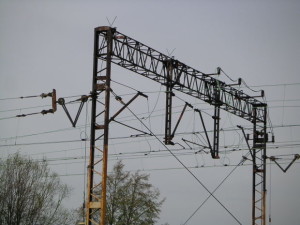Intentional Work Injuries Not Compensable in Alabama
Apr 8, 2014 - Amputation, Workers' Compensation/Work Injury by Cross & Smith
Workers can successfully file a Tuscaloosa workers’ compensation claim in most every case where an injury has occurred on the job (or in the course of employment).

One of the few instances in which employers can rightfully deny a claim for benefits is when the injury was intentionally self-inflicted. In this situations, it all comes down to the intent of the worker, and the onus is on the employer to prove intent.
This was the issue before the Mississippi Supreme Court in the case of Smith v. Tippah Electric Power Association. Despite this being an out-of-state case, the same general principles are applicable.
Here, the state high court reversed earlier rulings that denied coverage on the basis of the assertion that the amputation of both the worker’s arms was an intentional injury.
According to court records, the victim was employed as a lineman for an electrical company, working with a crew to install electrical service in a residential area.
He was in the “bucket” at the time of the accident. His job involved working with “hot” electrical wires. Those on his team would later testify that the worker seemed “down” that day. He wasn’t laughing or joking around as much as he usually did.
This may have had something to do with the fact that he was the subject of a criminal investigation. Or it may not have. There wasn’t any real proof one way or the other.
In the middle of his shift, a company representative came to the site to inform the worker that he was to be the subject of a random drug test. However, at no point was the worker actually informed of the reason for the representative’s visit. The representative said he simply called the worker to inform him to come down. The worker would later deny that he even heard this command.
None of the witnesses actually saw what happened, while the worker doesn’t remember much. What is known is that the bucket was heard moving and there was a sudden buzzing sound. When everyone turned to look the worker was lying in the power lines, one hand on the neutral line and one hand on the primary (hot) wire.
The worker would later say he believed he had dropped something, and when he knelt down to pick it up, he came in contact with the primary line.
Regardless, his injuries were severe. So bad, in fact, that both arms had to be amputated at the elbow.
When he filed for workers’ compensation benefits, the company denied the claim, insisting that the wounds were the result of a suicide attempt, brought on by depression because of the ongoing criminal investigation and the sudden announcement of a drug test.
Initially this finding was upheld by the workers’ compensation commission and the lower courts. However, the state supreme court reversed. Any assertion that the worker was depressed was pure speculation. There had been no psychiatrists attesting to this as a fact. Although he may have seemed “down” that morning, there was no other indication that he was suicidal. What’s more, no one disputes the fact that the worker had no idea why the company representative had come there that day and asked him to come down from the bucket. Therefore, there was no way he could have known that his job might be in jeopardy.
The company, the court found, had failed to meet the burden of proof necessary to successfully deny a claim.
Additional Resources:
Smith v. Tippah Electric Power Association, April 2014, Mississippi Supreme Court

